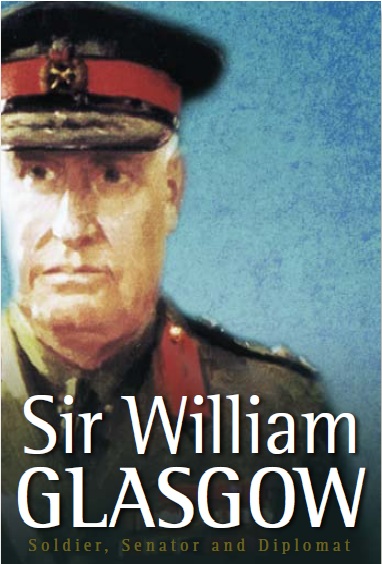Description
Title: Sir William Glasgow – Soldier, Senator and Diplomat
Author: Edgar, Peter
Condition: Mint
Edition: 1st Edition
Publication Date: 2011
ISBN: 9780987057495
Cover: Hard Cover with Dust Jacket – 407 pages
Comments: William Glasgow, believed that each man must help to defend his country, so as a teenager he joined the local mounted infantry militia.
He lived in interesting times. In October 1899 Lieutenant Glasgow, aged twenty-three, sailed with the first Queensland contingent to the war in South Africa. He and his unit helped to relieve Kimberley, take Bloemfontein, capture Johannesburg and Pretoria, and defeat the enemy at Diamond Hill, earning him a Distinguished Service Order medal.
In 1914, Major Glasgow, now a married man with two young daughters, sailed to war with the first AIF contingent. He led a charge on Dead Man’s Ridge, Gallipoli, in August 1915 and then, promoted to command a brigade in 1916, he was in action on the
Western Front at Mouquet Farm, Noreuil, Messines, Zonnebeke and Dernancourt. Famously, his brigade played a leading role in the April 1918 counter attack to regain Villers-Bretonneux. Glasgow then commanded the 1st Division in the 100-day advance to victory. On
the voyage home in 1919 he learned that he had been knighted and was now Sir William.
In 1920 Glasgow became a Senator and, in 1927, Minister for Defence. The decorated soldier was now responsible for devising defence policy despite severe financial difficulties. When war broke out again in 1939, Glasgow was sent to Canada as Australia’s first High Commissioner. By the time he returned to Australia in 1945, with victory in sight, he could look back on a long and distinguished career of service to his country.
Meticulously researched, Sir William Glasgow: Soldier, Senator and Diplomat is a fascinating and valuable book that tells the story of this once famous figure, his career in the AIF, Commonwealth Government and the diplomatic service, and in doing so reveals much
about Australia at war and peace in the first half of the 20th century.




